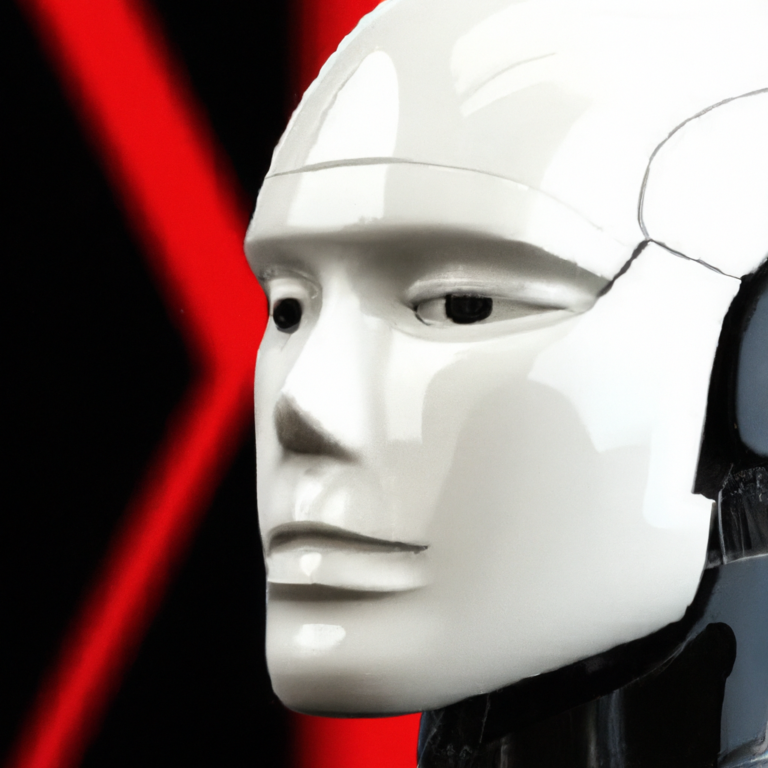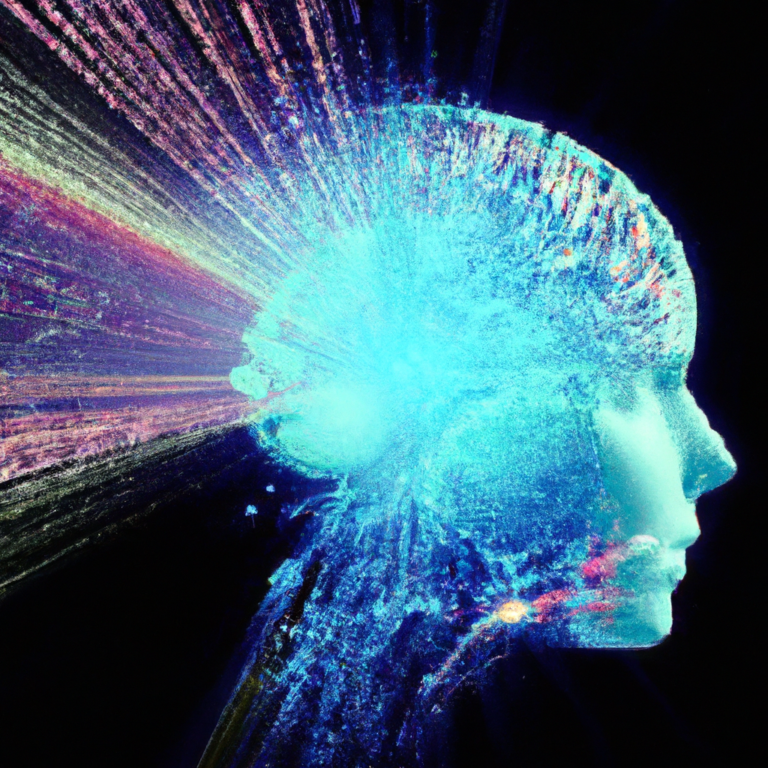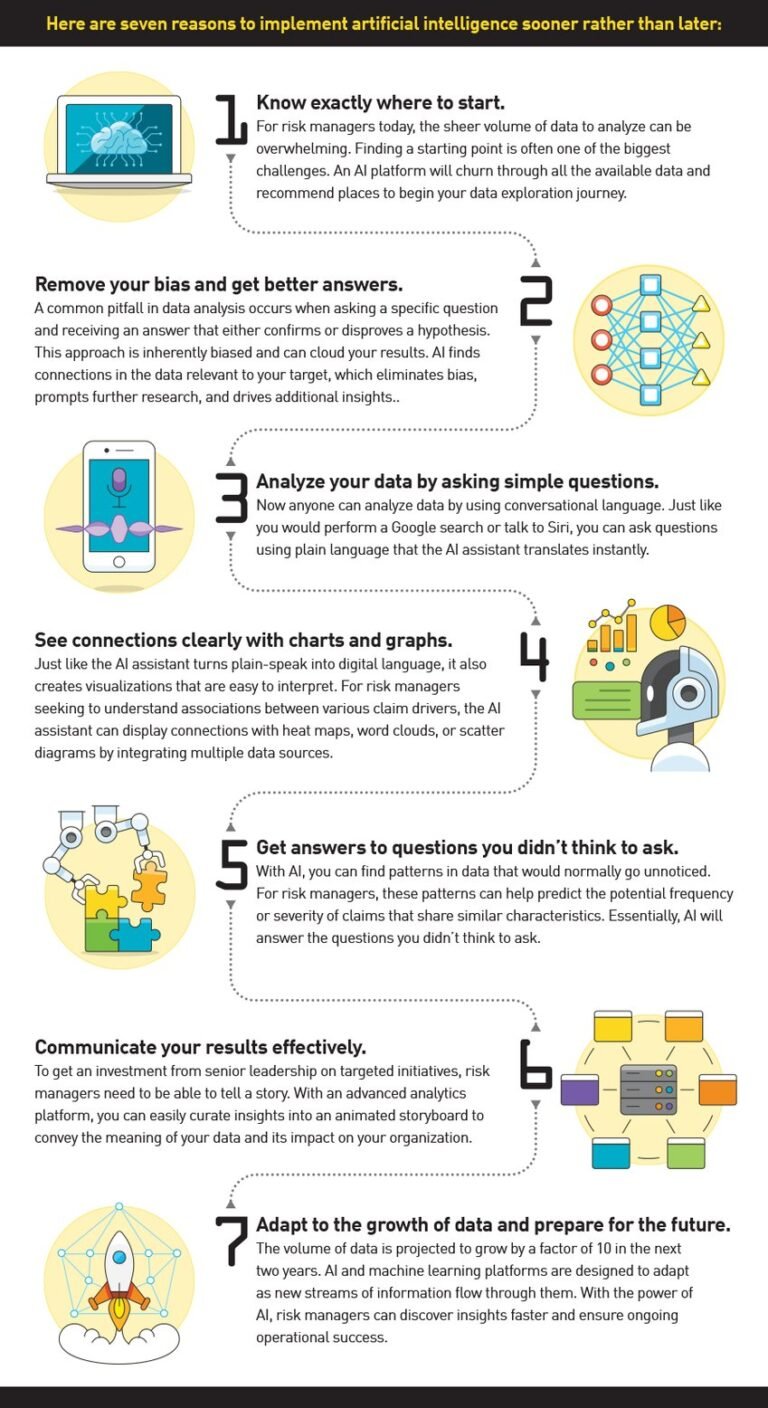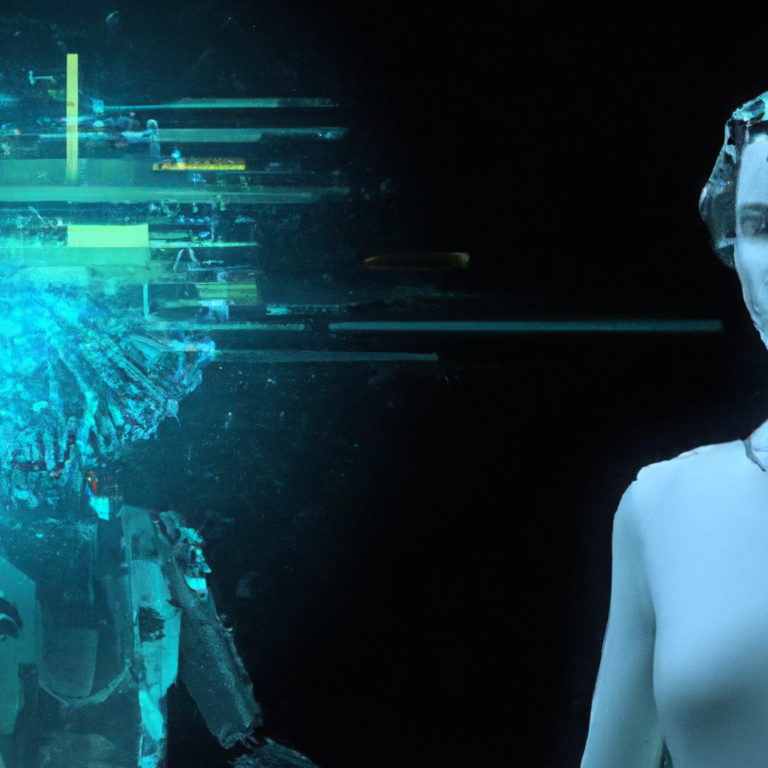How AI Is Changing The Way We Live And Work

In today’s rapidly evolving world, artificial intelligence (AI) has become a transformative force that reshapes how we live and work. With its ability to process vast amounts of data and perform complex tasks, AI offers new possibilities and remarkable advancements in numerous fields. From personalized recommendations and virtual assistants to autonomous vehicles and robotic automation, the impact of AI is pervasive and continually expanding. In this article, we will explore the ways in which AI is revolutionizing our daily lives, enhancing productivity, and opening up exciting opportunities for the future.

1. Automation in the Workplace
Automation has revolutionized the way we work, making processes more efficient and streamlined. With AI-powered systems, tasks that were once time-consuming and prone to errors can now be automated, allowing employees to focus on more important and strategic aspects of their jobs.
1.1. Streamlining Processes
One of the key benefits of AI in the workplace is its ability to streamline processes. AI can analyze large amounts of data at incredible speeds, identifying patterns and trends that humans might miss. This can lead to faster decision-making, improved productivity, and reduced costs.
For example, in manufacturing, AI-powered robots can automate repetitive tasks, such as assembly line processes or packaging, allowing for faster production and higher accuracy. In customer service, chatbots equipped with natural language processing can handle basic customer inquiries, freeing up human agents to focus on more complex issues.
1.2. Enhancing Efficiency
AI can enhance efficiency by automating tasks that previously required human intervention. By leveraging machine learning algorithms and predictive analytics, AI systems can identify bottlenecks or inefficiencies in workflows and suggest optimal solutions.
For instance, in the transportation industry, AI algorithms can optimize routes for delivery drivers, taking into account factors such as traffic conditions and delivery time windows. This not only saves time and fuel costs but also improves overall customer satisfaction.
1.3. Reducing Human Error
Human error can have significant consequences in various industries, including healthcare, finance, and manufacturing. AI can help reduce these errors by automating certain processes and introducing checks and balances.
In healthcare, for example, AI-powered diagnostic tools can analyze medical images and patient data, providing accurate and timely diagnoses. This can help eliminate human errors due to fatigue, distraction, or limited expertise, ultimately improving the quality of patient care.
2. Personal Assistants and Smart Devices
AI has transformed the way we interact with our devices and has given rise to personal assistants that can perform tasks and provide information on demand.
2.1. Voice Recognition and Natural Language Processing
Voice recognition technology, coupled with natural language processing, has made it easier than ever to communicate with our devices. Through voice commands, we can ask our smartphones, smart speakers, or even our cars to perform various tasks, such as making phone calls, setting reminders, or playing music.
These advancements in AI have made technology more accessible and intuitive, allowing us to navigate through our devices and control them effortlessly.
2.2. Smart Home Integration
AI-powered personal assistants have also enabled seamless integration with our smart homes. Through voice commands, we can control our lights, adjust the temperature, or even lock our doors. This level of integration not only enhances convenience but also improves energy efficiency and home security.
Imagine coming home from work and telling your personal assistant to turn on the lights, preheat the oven, and play your favorite playlist, all without lifting a finger.
2.3. Virtual Personal Assistants
Virtual personal assistants, such as Siri, Google Assistant, or Alexa, have become an integral part of our lives. These AI-powered assistants can answer questions, provide recommendations, and even engage in casual conversations.
Their ability to learn from our preferences and habits allows them to provide personalized suggestions for entertainment, shopping, or even travel plans. They simplify our daily tasks and adapt to our needs, ultimately making our lives more convenient and efficient.
3. Transforming Healthcare
AI has had a profound impact on the healthcare industry, transforming the way medical professionals diagnose, treat, and monitor patients.
3.1. Accurate Diagnosis and Treatment
AI-powered diagnostic tools can analyze medical images, such as X-rays or MRI scans, with incredible accuracy. By comparing images to vast databases of previously diagnosed cases, AI algorithms can help healthcare professionals detect early signs of diseases, such as cancer, with unprecedented precision.
This early detection can lead to more effective treatments and improved patient outcomes. Additionally, AI can assist in treatment planning by analyzing patient data and recommending personalized treatment options based on historical and real-time data.
3.2. Improved Patient Monitoring
AI-driven monitoring systems can continuously collect and analyze patient data, enabling healthcare professionals to detect and respond to critical changes in real-time. For example, wearable devices equipped with AI algorithms can monitor vital signs and alert medical staff in case of abnormal readings.
This continuous monitoring not only improves patient safety but also reduces the burden on healthcare resources by allowing early interventions and preventing unnecessary hospital admissions.
3.3. Telemedicine and Remote Care
AI has also facilitated the rise of telemedicine and remote care. Through video consultations and AI-powered symptom assessment tools, patients can receive medical advice and treatment from the comfort of their homes.
This is particularly beneficial for individuals living in remote areas or those with limited mobility, who would otherwise struggle to access healthcare services. AI-powered chatbots and virtual nurses can also provide patients with accurate information and assist in managing their conditions.
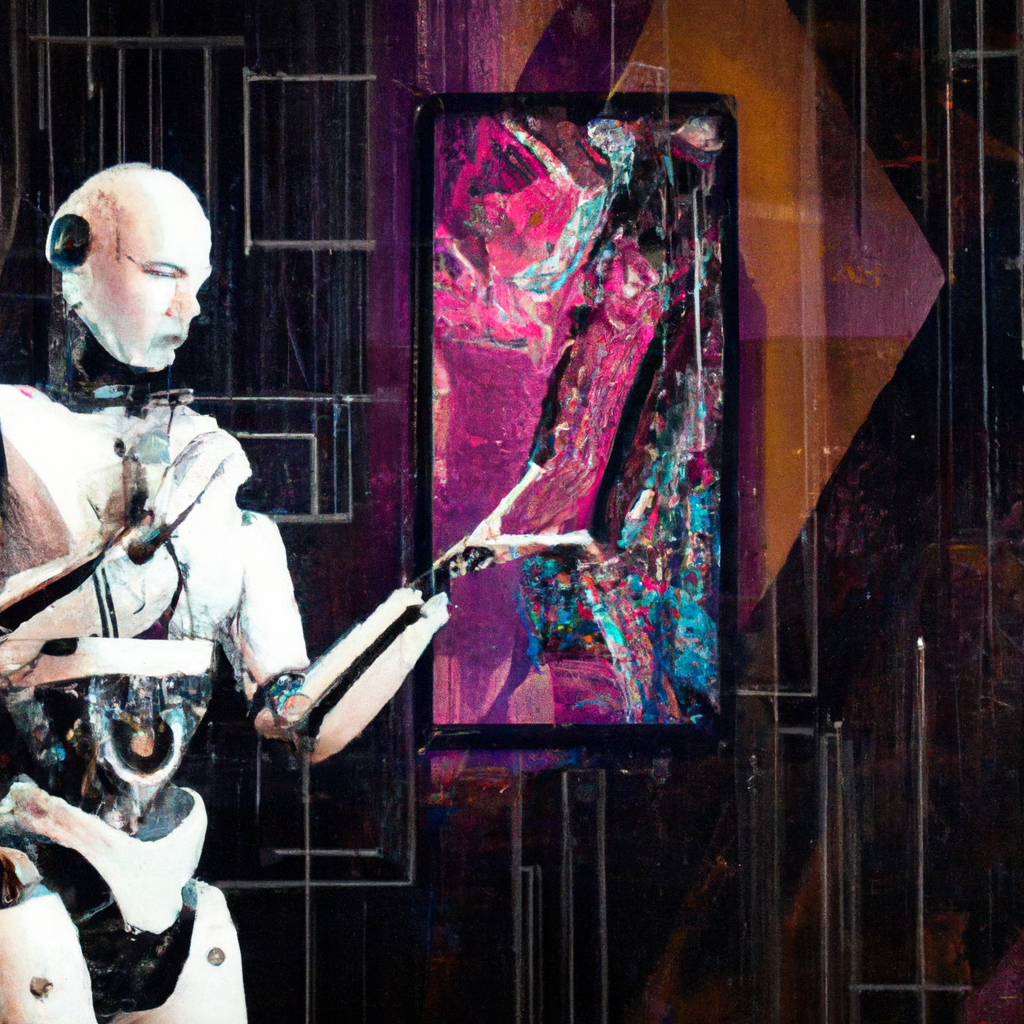
4. Revolutionizing Transportation
AI has had a significant impact on the transportation industry, revolutionizing the way we move from one place to another.
4.1. Self-Driving Vehicles
Self-driving vehicles, equipped with AI algorithms, have the potential to transform the way we commute, reducing accidents and improving traffic flow. With advanced sensors and machine learning capabilities, these vehicles can navigate through complex environments, adapt to changing road conditions, and make split-second decisions to ensure the safety of passengers and other road users.
Automated logistics vehicles can also optimize delivery routes, reduce fuel consumption, and increase efficiency in the transportation of goods.
4.2. Traffic Optimization
AI-powered traffic optimization systems can analyze real-time data from various sources, such as traffic cameras, GPS devices, and social media, to identify traffic congestion patterns and predict potential bottlenecks. By providing real-time traffic information and suggesting alternative routes, these systems help reduce travel time, fuel consumption, and overall environmental impact.
4.3. Ride-Sharing and Mobility Services
AI has also revolutionized the way we access transportation services. Ride-sharing platforms, such as Uber or Lyft, leverage AI algorithms to match riders with drivers, optimize routes, and calculate fares. This has not only made transportation more convenient and affordable but has also contributed to reducing traffic congestion and carbon emissions.
Furthermore, AI-powered mobility services, like bike-sharing or scooter-sharing, offer efficient and eco-friendly alternatives for short-distance travel in urban areas.
5. Enhancing Customer Service
AI has transformed the way businesses interact with their customers, enhancing the overall customer service experience.
5.1. Chatbots and Virtual Assistants
Chatbots, powered by AI, have become a common sight on business websites, social media platforms, and messaging apps. These virtual assistants can handle basic customer inquiries, provide product information, and even assist in placing orders.
With advancements in natural language processing, chatbots can understand and respond to customer queries in a human-like manner, providing a personalized and efficient customer service experience. They are available 24/7 and can handle multiple inquiries simultaneously, ensuring that customers receive timely responses.
5.2. Personalized Recommendations
AI-powered recommendation systems have become indispensable in various industries, such as e-commerce, entertainment, and online streaming platforms. By analyzing user preferences, purchase history, and browsing behavior, these systems can suggest products, movies, or TV shows that align with individual preferences.
This level of personalization not only enhances the customer experience but also boosts sales and customer loyalty, as customers are more likely to engage with products or services that cater to their specific interests.
5.3. 24/7 Support
AI-powered customer service solutions offer 24/7 support to clients, ensuring that assistance is available whenever needed. Virtual assistants and chatbots can handle inquiries outside regular business hours, reducing waiting times and providing a seamless customer experience.
By leveraging AI, businesses can enhance their customer service capabilities and build stronger relationships with their clients, ultimately leading to increased customer satisfaction and loyalty.
6. Advanced Data Analysis
AI has revolutionized data analysis, enabling organizations to gain valuable insights and make data-driven decisions.
6.1. Predictive Analytics
Predictive analytics, powered by AI algorithms, can analyze large datasets and identify patterns and trends. By utilizing historical data and machine learning techniques, organizations can make accurate predictions about future outcomes, such as customer behavior, market trends, or equipment failure.
This helps businesses optimize their operations, improve resource allocation, and anticipate future needs or challenges, ensuring a competitive edge in the market.
6.2. Fraud Detection
AI-powered systems have significantly improved fraud detection capabilities in various industries, such as banking, insurance, and e-commerce. These systems can analyze vast amounts of data, such as transaction history, customer behavior, and network patterns, to identify suspicious activities and fraudulent behavior.
By flagging potentially fraudulent transactions in real-time, organizations can mitigate risks, protect their assets and customers, and save significant financial losses.
6.3. Market Insights
AI has democratized market research and provided organizations with valuable consumer insights. By analyzing social media data, online reviews, and customer feedback, AI-powered systems can identify emerging trends, sentiment analysis, and customer preferences.
This deep understanding of the market allows organizations to tailor their products, marketing strategies, and customer experiences to meet the evolving needs and desires of their target audience, ultimately driving business growth and success.
7. Artificial Intelligence in Education
AI has started to reshape the education sector, offering personalized learning experiences and improving the overall learning outcomes.
7.1. Intelligent Tutoring Systems
Intelligent tutoring systems leverage AI algorithms to adapt educational content and provide personalized feedback to students. These systems can assess a student’s knowledge gaps, learning style, and progress, tailoring the educational material to their individual needs.
By analyzing large amounts of data, these systems can identify areas where students struggle the most and provide targeted interventions and remedial exercises, ultimately improving learning outcomes and engagement.
7.2. Adaptive Learning
Adaptive learning platforms utilize AI algorithms to deliver personalized learning experiences to students. By continuously assessing a student’s performance and adjusting the content and pace of their learning journey, these platforms ensure that students receive individualized instruction that suits their unique needs.
Through adaptive learning, students can learn at their own pace, focus on areas where they need the most support, and enhance their overall understanding of the subject matter. This personalized approach to education fosters student engagement and improves learning retention.
7.3. Automated Grading
AI-powered automated grading systems can save educators valuable time by automatically grading objective assessments, such as multiple-choice questions or fill-in-the-blank exercises. These systems utilize machine learning algorithms to analyze student responses and provide accurate and consistent grading.
Automated grading not only reduces the burden on teachers but also allows for faster feedback, enabling students to learn from their mistakes and improve their performance in a timely manner.
8. Impact on the Manufacturing Industry
AI has had a transformative impact on the manufacturing industry, revolutionizing production processes, quality control, and supply chain management.
8.1. Robotics and Automation
AI-powered robots have become an integral part of many manufacturing processes, leading to increased efficiency, higher production rates, and improved quality control. These robots can perform tasks that are dangerous, repetitive, or require extreme precision, freeing up human workers to focus on more strategic and complex tasks.
Robots equipped with computer vision and machine learning capabilities can identify defects in products, perform quality checks, and even self-correct their actions based on real-time data analysis, ensuring consistent and high-quality output.
8.2. Quality Control
AI has significantly improved quality control in the manufacturing industry. Machine learning algorithms can analyze data from sensors and cameras in real-time, detecting anomalies and deviations from expected standards.
By identifying potential issues at an early stage, organizations can prevent defective products from reaching the market, reduce waste, and ensure customer satisfaction. AI-powered quality control systems can also learn from historical data and continuously improve their accuracy and performance.
8.3. Supply Chain Optimization
AI algorithms can optimize supply chain management by analyzing data from various sources, such as inventory levels, demand forecasts, and transportation routes. By providing real-time insights and recommendations, organizations can optimize inventory levels, ensure timely delivery, and reduce costs.
Additionally, AI-powered supply chain management systems can detect potential bottlenecks, mitigate risks, and enhance overall transparency and traceability across the supply chain, improving efficiency and minimizing disruptions.
9. AI in Entertainment and Media
AI has had a significant impact on the entertainment and media industry, transforming the way content is created, curated, and consumed.
9.1. Content Creation and Curation
AI algorithms can analyze vast amounts of data, including user preferences, historical viewership data, and market trends, to generate content recommendations and personalized playlists. Streaming platforms, such as Netflix or Spotify, leverage AI to curate content based on individual preferences, ensuring that users receive tailored recommendations and discover new content.
Additionally, AI has also enabled the creation of content. AI-driven tools can generate music, artwork, or even written content, assisting artists and creators in their creative process and opening new possibilities for artistic expression.
9.2. Personalized Recommendations
AI-powered recommendation systems have transformed the way we consume media. By analyzing user data and preferences, these systems can suggest movies, TV shows, or music that align with our individual tastes.
From personalized playlists on streaming platforms to customized news feeds on social media, AI has made it easier than ever to access content that caters to our specific interests. This enhances the overall user experience and ensures that we are exposed to content that we are most likely to enjoy.
9.3. Virtual Reality Experiences
AI and virtual reality (VR) have merged to create immersive and interactive experiences in the entertainment industry. From gaming to virtual travel experiences, AI-powered VR solutions can create realistic and engaging simulations that transport users to different worlds.
These experiences enhance entertainment possibilities and provide unique opportunities for storytelling and user engagement.
10. Ethical and Social Considerations
As AI becomes more pervasive in our lives and work, it is essential to address the ethical and social implications that arise from its deployment.
10.1. Job Displacement and Reskilling
The automation of certain tasks and processes through AI has raised concerns about potential job displacement. While AI can replace repetitive and routine jobs, it also creates new opportunities for higher-skilled and creative positions.
To mitigate the negative impact of job displacement, organizations and governments must invest in reskilling programs to equip workers with the necessary skills to adapt and thrive in the AI-driven workplace.
10.2. Privacy and Data Security
AI systems rely heavily on data, and concerns about privacy and data security have become more prominent. Organizations must ensure that they handle sensitive data responsibly and comply with privacy regulations.
Moreover, AI algorithms must be trained on unbiased and diverse datasets to avoid perpetuating biases or discrimination. Transparency and fairness in AI decision-making processes are crucial to maintaining trust and ethical standards.
10.3. Bias and Fairness in AI
AI systems can unintentionally amplify biases present in historical data or perpetuate discriminatory practices. For example, biased algorithms used in hiring processes can perpetuate gender or racial biases, leading to unfair outcomes.
To address this, organizations must actively mitigate bias in AI systems by regularly auditing algorithms, diversifying datasets, and involving diverse teams in the development and testing processes. This ensures fairness, inclusivity, and equal opportunities for all individuals affected by AI technologies.
In conclusion, AI is rapidly changing the way we live and work, from streamlining processes in the workplace to enhancing customer service and transforming various industries such as healthcare, transportation, and entertainment. While AI offers tremendous benefits, it is essential to consider the ethical and social implications that arise from its deployment. By addressing concerns such as job displacement, privacy, data security, and bias, we can ensure that AI is developed and deployed in a responsible and beneficial manner for society as a whole.
Want to write articles like us? Get your copy of AI WiseMind here!



